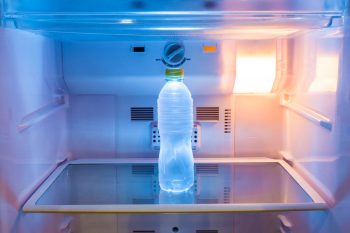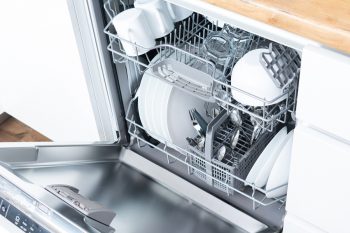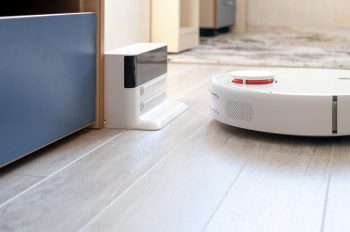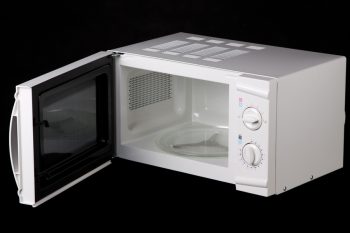
Dishwasher tablets are a staple in many households, offering convenience and efficiency in maintaining clean and shiny dishes. But have you ever wondered how these small, compact tablets work their magic? In this article, we delve deep into the science behind dishwasher tablets and how they interact with your dishes to remove food residues and stains.
Dishwasher tablets work by dissolving in the water during the dishwasher’s wash cycle. The water temperature helps the tablet to dissolve and release its cleaning agents, such as enzymes, surfactants, and other chemicals. These agents work together to break down and remove food particles, stains, and grease from dishes. The dishwasher then rinses the dishes with clean water, leaving them clean and sparkling.
Main Components of a Dishwasher Tablet
Dishwasher tablets are made up of several key components, each playing a crucial role in the dish cleaning process:
- Sequestrants: These components capture limescale and magnesium from the water, preventing them from depositing on the dishes and causing streaking, staining, or whitening effects.
- Enzymes: Protease and amylase are two common enzymes found in dishwasher tablets. Protease works on protein-based stains while amylase tackles starch-based stains, effectively breaking them down for easy removal.
- Sodium Percarbonate and Boosters: Sodium percarbonate releases active oxygen to lift out oxidizable stains like wine, tea, and coffee. Boosters enhance the performance of other ingredients.
- Surfactants: These agents help to break down and remove grease and grime from the dishes.
- Sodium Carbonate and Sodium Hypochlorite: These chemicals are used in a reaction to clean the dishes.
How Dishwasher Tablets Dissolve and Release Cleaning Agents
Once you load your dishwasher and add a tablet, the tablet dissolves in water during the wash cycle. The water temperature, typically ranging from 120-140 degrees Fahrenheit, plays a crucial role in ensuring the tablet dissolves properly. The water-soluble film enclosing the tablet dissolves when it comes into contact with water, releasing the cleaning agents inside.
The enzymes, surfactants, and other cleaning agents work together to break down and remove food particles, stains, and grease from your dishes. After the cleaning cycle, the dishwasher rinses the dishes with clean water, leaving them clean and sparkling.
Dishwasher Tablets vs. Other Forms of Dishwasher Detergents
Dishwasher tablets stand out from other forms of dishwasher detergents due to their convenience, efficiency, and steady release of detergent throughout the dishwashing cycle. They are pre-measured, ensuring the right amount of detergent for each cycle, and contain additional cleaning agents, such as salt and rinsing agents, providing an all-in-one cleaning solution.
In comparison, powder detergents can be more efficient at removing tough stains and are often a better choice for hard water. Liquid detergents, on the other hand, are less efficient and may contain more harmful compounds.
Misconceptions and Misunderstandings About Dishwasher Tablets
Several misconceptions surround the use of dishwasher tablets and dishwashers in general. For instance, pre-rinsing dishes is not necessary and can even hinder dishwasher performance. Also, more detergent does not equate to cleaner dishes. In fact, using too much detergent can lead to soap residue on dishes and potential damage to the dishwasher.
Additionally, while dishwashers do have self-cleaning features, regular maintenance and cleaning are necessary for optimal performance. And contrary to popular belief, using a dishwasher can be more water-efficient than handwashing dishes.
Conclusion
Understanding how dishwasher tablets work can help you use them more effectively and efficiently. These small tablets are packed with powerful cleaning agents that work together to ensure your dishes come out clean and spotless. Remember to follow the manufacturer’s instructions for your specific dishwasher model and use the recommended amount of dishwasher detergent to ensure the best results.
Frequently Asked Questions
Can I use regular dish soap in my dishwasher?
No, regular dish soap should not be used in a dishwasher. It can produce too many suds which can damage the machine and leave your dishes less clean.
What happens if I use too many dishwasher tablets?
Using too many dishwasher tablets can result in soap residue on your dishes and can potentially damage your dishwasher. It’s recommended to use the amount specified by the manufacturer.
Can I break a dishwasher tablet in half if I have a smaller load?
While it’s technically possible to break a tablet in half, it’s not recommended. The tablet is designed to dissolve and release cleaning agents at a certain rate. Breaking it might disrupt this process and lead to less effective cleaning.
Is there a specific place where I should put the dishwasher tablet in my dishwasher?
Yes, most dishwashers have a designated compartment for dishwasher tablets. Consult your dishwasher’s manual to locate it.
Can dishwasher tablets expire or lose their effectiveness over time?
Dishwasher tablets do not typically have an expiration date, but they can lose effectiveness if exposed to moisture. Always store them in a cool, dry place.












